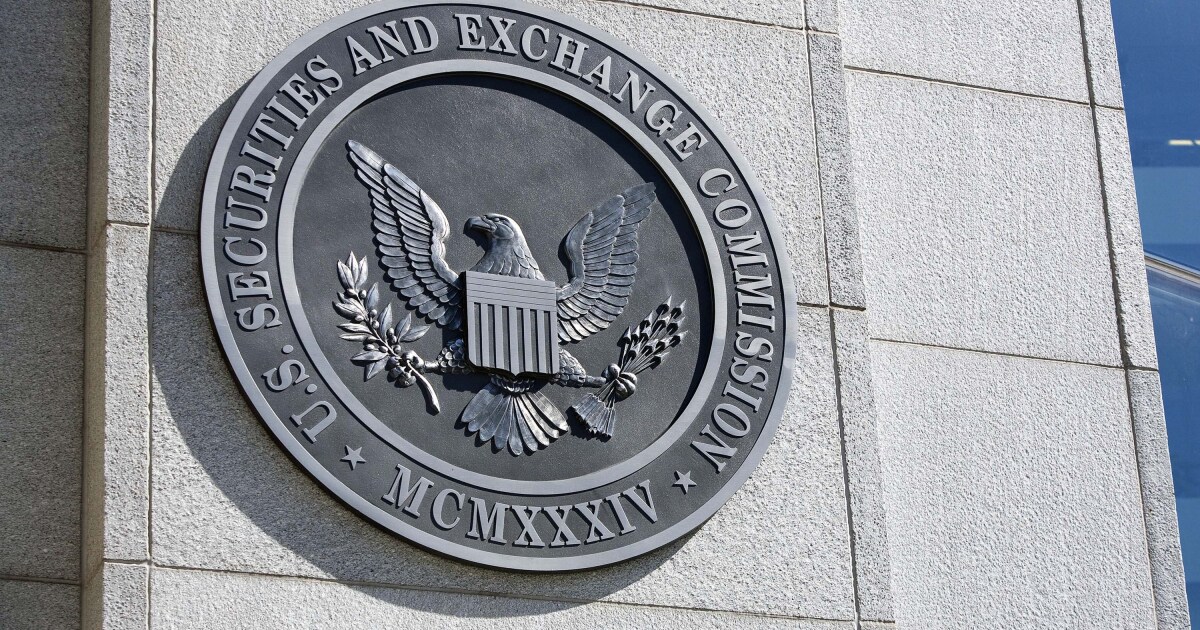The Securities and Exchange Commission voted to end its legal defense of the climate-related disclosure rule it approved last year under the Biden administration.
The climate disclosure rule was facing numerous lawsuits from business groups and a temporary stay imposed by a court, the SEC had already paused it last April after narrowly approving a watered-down rule last March. The former SEC chairman, Gary Gensler, who had pushed for the rule, stepped down in January and acting chairman, Mark Uyeda, who had voted against the rule, announced in February that he was directing the SEC staff to ask a federal appeals court not to schedule the case for argument. He cited a recent presidential memorandum from the Trump administration imposing a regulatory freeze, and he effectively paused the litigation. The vote on Thursday effectively suspends the rule.
“The goal of today’s Commission action and notification to the court is to cease the Commission’s involvement in the defense of the costly and unnecessarily intrusive climate change disclosure rules,” Uyeda said in a statement Thursday.
The SEC noted that states and private parties have challenged the rules, and the litigation was consolidated in the Eighth Circuit Court of Appals. SEC staff sent a letter to the court stating that the Commission was withdrawing its defense of the rules and that Commission counsel are no longer authorized to advance the arguments in the brief the Commission had filed. The letter stated that the SEC yields any oral argument time back to the court.
One of the SEC commissioners blasted the move and pointed to the arduous, years-long process of crafting the climate rule. “By way of politics, the current Commission would like to dismantle that rule. And they would like to do so unlawfully,” said SEC commissioner Caroline Crenshaw in a statement Thursday. “The Administrative Procedure Act governs the process by which we make rules. The APA prescribes a careful, considered framework that applies both to the promulgation of new rules and the rescission of existing ones. There are no backdoors or shortcuts. But that is exactly what the Commission attempts today. By its letter, we are apparently letting the Climate-Related Disclosures Rule stand but are withdrawing from its defense in court. This leaves other parties, including the court, in a strange and perhaps untenable situation. In effect, the majority of the Commission is crossing their fingers and rooting for the demise of this rule, while they eat popcorn on the sidelines.”
Environmental groups were critical of the SEC’s vote. “Climate change is a growing financial risk, and ending the SEC’s defense of its own climate disclosure rule is a dangerous retreat from investor protection,” said Ben Cushing, sustainable finance campaign director at the Sierra Club, in a statement. “Letting companies hide climate risks doesn’t make those risks any less real — it just makes it harder for investors to manage them and protect their long-term savings. The SEC is leaving investors in the dark at exactly the moment transparency and action is most needed.”
“The SEC was established to protect investors, and for more than 20 years, investors have clearly and overwhelmingly stated that they need more clear, consistent, and decision-useful information on companies’ exposure to climate-related financial risks,” said Steven M. Rothstein, Ceres’s managing director for the Ceres Accelerator for Sustainable Capital Markets, in a statement. “The ongoing acceleration of physical climate impacts, including the tragic fires in Los Angeles, has underscored the importance of transparency on these risks. Investors have clearly indicated they require better disclosure, with $50 trillion in assets under management broadly supportive of the rule adopted in March 2024. This is clearly a step backward in helping investors and other market participants have the information they need to manage climate-related financial risks.”


 Economics5 days ago
Economics5 days ago
 Personal Finance6 days ago
Personal Finance6 days ago
 Economics6 days ago
Economics6 days ago
 Economics5 days ago
Economics5 days ago
 Personal Finance6 days ago
Personal Finance6 days ago
 Accounting4 days ago
Accounting4 days ago
 Economics4 days ago
Economics4 days ago
 Personal Finance1 week ago
Personal Finance1 week ago











